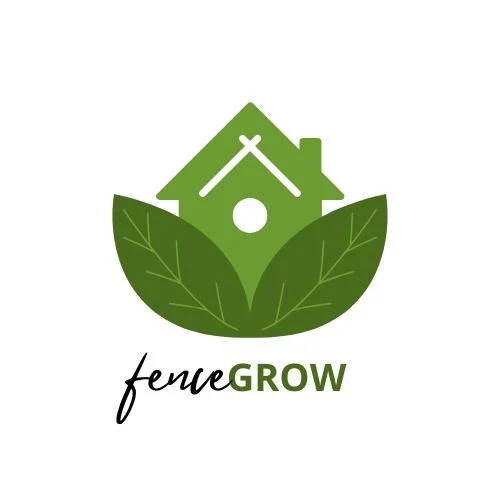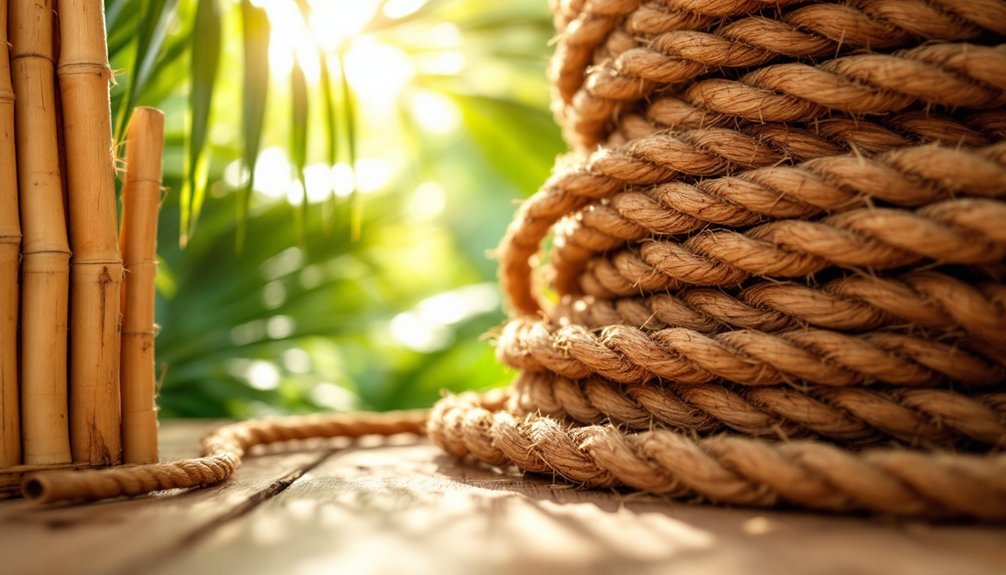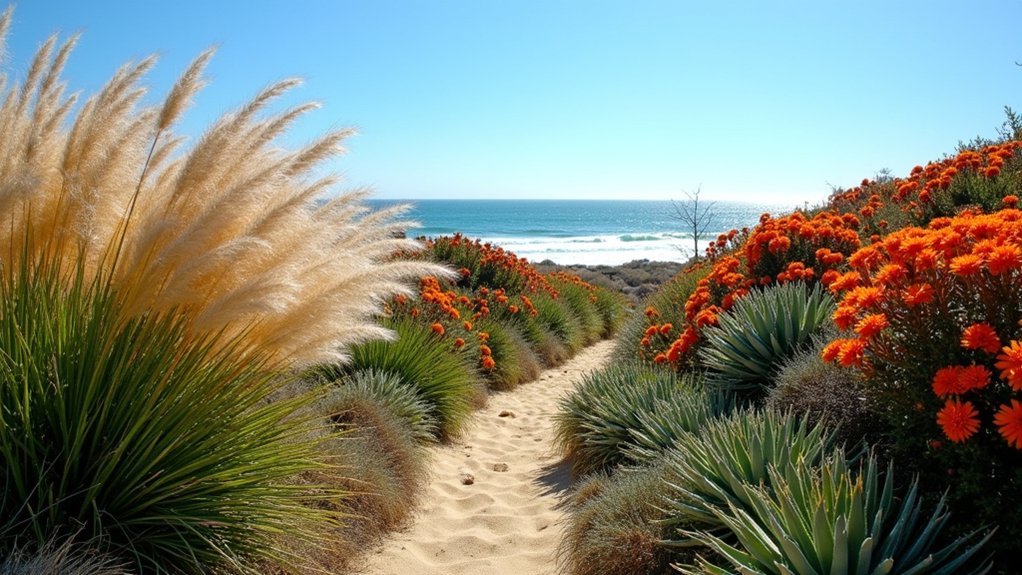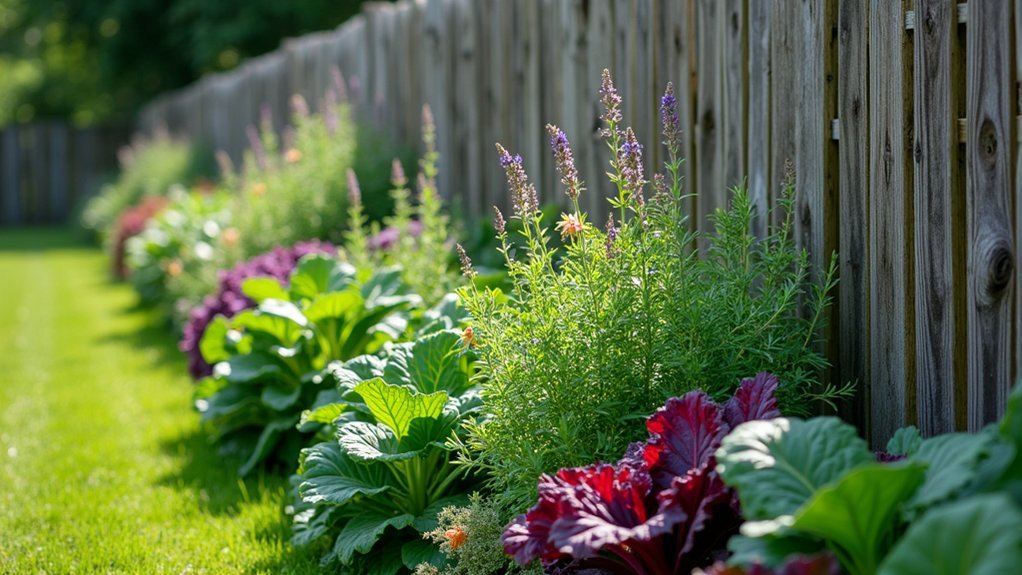Are you planning to build a tropical fence that's both eco-friendly and resilient? You'll want to contemplate coconut fiber ropes as your go-to binding material. These natural cords offer impressive durability against harsh weather while maintaining an authentic tropical aesthetic. In our 2025 guide, we've tested dozens of options to bring you the top 10 coconut fiber ropes that'll transform your fence project from ordinary to extraordinary. Let's explore what makes these sustainable options stand out from the rest.
Natural Coconut Coir Fibre Rope for Crafts and Gardens (20ft)
Eco-conscious gardeners and crafters will find this premium coconut coir rope an exceptional choice for sustainable projects. Made from 100% natural, biodegradable coconut fibers in India, this two-ply twisted rope combines sustainability with impressive functionality.
You'll appreciate its remarkable 100-pound breaking strength and ability to absorb ten times its weight in water—perfect for supporting vining plants and enhancing root development. At 20ft per hank (with four hanks per pack), you'll have ample material for fencing projects.
The thick, coarse texture provides excellent grip, though you might find it somewhat stiff for intricate crafting. Its earthy aesthetic makes it ideal for tropical-themed boundary solutions.
Best For: Eco-conscious gardeners and DIY crafters seeking a strong, sustainable natural fiber rope for plant support, garden projects, and rustic decorative elements.
Pros:
- Made from 100% natural, biodegradable coconut fibers with impressive 100-pound breaking strength
- Exceptional water absorption capacity (ten times its weight), making it ideal for plant hydration and root development
- Versatile material suitable for multiple applications including garden support, boundary marking, and bohemian-style home décor projects
Cons:
- Thick, stiff texture may be difficult to work with for intricate or delicate crafting projects
- Rough texture can be uncomfortable on hands during extended use without gloves
- May be thicker and less flexible than some users expect for certain applications
Gardening Twine, Coconut Fiber Rope (200 Feet, 4 Pack)
Gardeners seeking a reliable, powerful natural support system will find their match in the Gardening Twine Coconut Fiber Rope 4-pack. With an impressive 100-pound breaking strength, this 6mm thick rope delivers industrial-grade performance while remaining completely biodegradable.
You'll appreciate the generous 200-foot supply (four 50-foot hanks) for extensive fencing projects. The rope's natural baby hairs enhance grip, making it perfect for securing fence posts in tropical environments. When it eventually decomposes, it'll actually enrich your soil instead of polluting it.
This weather-resistant coir strikes the ideal balance between flexibility and durability for long-lasting tropical fence construction.
Best For: Environmentally-conscious gardeners looking for a strong, natural solution for plant support, trellising, or fence construction that won't harm the ecosystem when it biodegrades.
Pros:
- Exceptional 100-pound breaking strength makes it robust enough for securing heavy plants or building garden structures
- 100% biodegradable coconut fiber actually enriches soil as it decomposes, leaving no harmful waste
- Natural "baby hairs" along the twine create superior grip for plants and improve stability for various gardening applications
Cons:
- At 6mm thickness, may be too bulky for delicate plants or precision tying tasks
- Natural fiber may deteriorate faster than synthetic alternatives in extremely wet conditions
- Limited to 200 feet total (four 50-foot sections), which might not be sufficient for extensive landscaping projects
Coconut Fiber Twine (150 feet, 5mm Thickness)
Those seeking a versatile natural twine for their garden projects will find the Coconut Fiber Twine (150 feet, 5mm thickness) an exceptional choice. This 100% biodegradable coir rope offers impressive water retention—holding four times the standard capacity.
At 5mm thick, you'll have sturdy support for climbing plants, garden structures, and nursery applications. The 150-foot length provides ample material for extensive projects while remaining manageable at just 1.34 pounds.
With a 4.5-star rating, gardeners particularly praise its effectiveness with hop plants. Though some find it too thick for delicate plants, most appreciate its durability for fencing and structural applications where natural materials are preferred.
Best For: Gardeners and sustainable horticulturists seeking a strong, environmentally friendly support for climbing plants, garden structures, and natural fencing applications.
Pros:
- 100% biodegradable coir fiber with exceptional water retention (4x standard capacity)
- Durable 5mm thickness provides reliable support for heavier climbing plants like hops
- Generous 150-foot length offers ample material for extensive garden projects while remaining lightweight at 1.34 pounds
Cons:
- May be too thick (5mm) for supporting delicate or smaller plants
- Some users report inconsistent thickness throughout the 150-foot length
- Higher price point compared to synthetic twine options with similar strength characteristics
Coconut Fiber Twine (100% Natural, 1150 ft)
Nature enthusiasts seeking reliable, planet-friendly fencing solutions will appreciate Happy House's 100% natural coconut fiber twine. This durable 1150-foot roll delivers exceptional value with its 5mm thickness, perfect for creating sturdy tropical fence structures.
At 7.5 pounds, this coir twine offers impressive tensile strength while remaining 100% biodegradable. It's particularly effective for supporting climbing plants in your fence design, as noted by gardeners who've successfully used it for growing hops.
You'll enjoy the flexibility of cutting custom lengths to accommodate your specific fencing needs. With a solid 4.4-star rating, this brown twine blends naturally with outdoor environments.
Best For: Garden enthusiasts and nature lovers seeking an eco-friendly, durable solution for creating plant support systems, tropical fence structures, or garden borders with minimal environmental impact.
Pros:
- 100% natural coconut fiber that is fully biodegradable, making it an environmentally responsible choice for garden projects
- Substantial 1150-foot length with 5mm thickness provides excellent value and sufficient material for extensive garden applications
- Versatile for supporting climbing plants and creating custom-length garden structures as confirmed by positive customer reviews
Cons:
- Some customers have reported discrepancies in the actual product size compared to what was advertised
- At 7.5 pounds, the roll may be somewhat heavy to handle for some users
- Limited color options as it only comes in natural brown tones, which may not suit all garden design aesthetics
Happy House Natural Coconut Fiber Hop Twine (Pre-Cut Pieces)
Environmentally conscious fence builders will appreciate Happy House's 100% natural coconut fiber hop twine, which comes thoughtfully prepared in 50 pre-cut pieces at 20.5 feet each. At 6mm diameter, this sturdy brown twine boasts an impressive 100-pound tensile strength—making it the strongest natural fiber option available.
You'll find these USA-made fibers completely biodegradable, eventually decomposing to enrich your soil rather than requiring disposal. Though designed for hop training, the pre-cut format saves considerable labor time when constructing tropical fencing. Despite its specialized purpose, this twine's weather resistance and durability make it an excellent choice for fence projects requiring reliable natural materials.
Best For: Environmentally-conscious gardeners and commercial hop growers looking for strong, pre-cut natural twine that reduces labor time and biodegrades after use.
Pros:
- Exceptional 100-pound tensile strength makes it the strongest natural fiber hop twine on the market
- Pre-cut 20.5-foot pieces (50 per bundle) eliminate measuring and cutting time during installation
- 100% biodegradable coconut fiber enriches soil as it decomposes, eliminating disposal concerns
Cons:
- Premium price point at 8.05 pounds per bundle may be costly for small-scale or hobby gardeners
- Limited to 20.5-foot lengths which might not be ideal for all trellis or fence configurations
- Specialized product with fewer reviews (only 2 ratings) compared to more established gardening supplies
Coconut Fiber Twine, 200 Feet Premium Quality Coir Twine
The Coconut Fiber Twine, spanning an impressive 200 feet of premium quality coir, offers gardeners and crafters four convenient 50-foot hanks of 5mm diameter rope that's perfect for sustainable fencing solutions.
You'll appreciate this machine-spun twine's consistent thickness and exceptional strength when creating tropical-style barriers. Its rough texture and excellent knot-holding ability make it ideal for securing fence panels while withstanding outdoor conditions. Many users repeatedly purchase this versatile product for both decorative and functional fencing projects.
Whether you're constructing a garden boundary or creating a beautiful tropical-inspired partition, this durable coir twine delivers reliability that lasts throughout multiple seasons.
Best For: Gardeners and DIY enthusiasts seeking a sustainable, strong natural fiber twine for trellising climbing plants, creating garden boundaries, or crafting tropical-style decorative projects.
Pros:
- Premium quality machine-spun coir twine offers consistent 5mm diameter and exceptional strength across all four 50-foot hanks
- Rough texture provides excellent grip for climbing plants like tomatoes, cucumbers, pole beans, and hops
- Durable natural fiber maintains integrity throughout growing seasons and holds knots securely for reliable garden applications
Cons:
- At 5mm diameter, may be thicker than needed for delicate crafting projects or lighter plants
- Natural coir fiber may shed slightly when first handled or during initial setup
- Limited to 200 feet total (four 50-foot sections) which might require multiple packages for larger trellising or fencing projects
Natural Hemp Rope (3/4 in x 50 ft) for Hammocks and Swings
For homeowners seeking authenticity in their property boundaries, Natural Hemp Rope offers a rustic, eco-friendly alternative to traditional fencing materials. This 3/4-inch thick, 50-foot rope boasts impressive 578-pound tensile strength, making it ideal for tropical fence construction.
You'll appreciate the four tightly woven strands that provide flexibility while maintaining durability in outdoor settings. The natural brown jute has built-in oil for abrasion resistance, perfect for withstanding tropical weather conditions.
At just 4.02 pounds, it's easy to handle yet strong enough for fence posts. Simply cut to your desired length, securing ends with tape to prevent fraying.
Best For: Homeowners looking for a decorative and natural boundary option that can be used for hammocks, swings, and rustic fencing projects with moderate weight requirements up to 578 pounds.
Pros:
- Impressive 578-pound tensile strength with four tightly woven strands making it durable for outdoor decorative uses
- Natural jute material with built-in oil for increased flexibility and abrasion resistance in various weather conditions
- Lightweight (4.02 pounds) and easy to handle, cut, and resize for custom project needs
Cons:
- May not be suitable as a permanent fencing solution in areas with extreme weather conditions
- Requires proper maintenance and potential replacement over time as natural fibers can degrade
- Initial oil coating may produce an odor that requires air-drying before use in enclosed spaces
Natural Jute Rope (1 Inch x 100 Feet) for Multiple Uses
Homeowners seeking rustic charm and durability will appreciate Natural Jute Rope's impressive versatility. This 1-inch diameter, 100-foot rope boasts a 1880-pound working load with four tightly braided strands enhancing strength and flexibility.
You'll find endless applications – from bed swings and dock railings to decorative fences and landscaping features. The high-quality jute fiber construction avoids sharp slivers while providing exceptional knotting capability.
Be aware that some customers report receiving smaller diameters than advertised, and packaging issues occasionally require additional preparation. Despite mixed reviews, many users praise its aesthetic appeal and functional strength for outdoor projects.
Best For: Homeowners, DIY enthusiasts, and decorators looking for a strong, natural-looking rope to create rustic aesthetics in both indoor and outdoor settings.
Pros:
- Impressive 1880-pound working load capacity with four-strand braided construction for durability
- Versatile applications ranging from decorative elements to functional purposes like bed swings and railings
- Made from high-quality jute fiber that avoids sharp slivers and offers excellent knotting flexibility
Cons:
- Some customers report receiving rope with smaller diameter than the advertised 1-inch specification
- Packaging issues including poorly taped ends that may require additional preparation before use
- Manila rope contains oil that produces an odor (though it dissipates after air-drying)
Tomato Twine (Natural Coconut Fiber, 150 Feet)
Gardeners with sustainability goals will appreciate Tomato Twine's 100% natural coconut fiber construction. This 150-foot, 3mm thick brown rope delivers impressive strength, supporting up to 100 pounds depending on thickness.
You'll find this Sri Lankan-sourced coir particularly effective for tropical fence construction due to its moisture-absorbing properties. The renewable material, harvested from coconut husks, offers complete biodegradability when your project reaches its end.
While customer ratings (3.0/5 stars) suggest room for improvement, the eco-friendly benefits may outweigh concerns for environmentally conscious builders. The 12.6-ounce weight makes it manageable for various fencing applications where natural aesthetics matter.
Best For: Eco-conscious gardeners who need durable, biodegradable support for tomatoes, cucumbers, and other climbing plants or for sustainable tropical fence construction.
Pros:
- 100% natural coconut fiber that's renewable, eco-friendly, and fully compostable
- Strong braking strength up to 100 lbs makes it suitable for supporting heavy climbing plants
- Moisture-absorbing properties make it ideal for tropical environments and high-humidity gardening
Cons:
- Limited customer feedback with a mediocre 3.0/5 star rating suggesting potential quality issues
- At 3mm thickness, may be too bulky for more delicate plant-tying applications
- More expensive than synthetic twine options as indicated by its relatively low sales ranking
Tomato Tying Garden Twine (60 feet, 3mm Coconut Fiber)
The vegetable gardener seeking an eco-conscious solution will find the Tomato Tying Garden Twine ideal for their plant support needs. This 3mm thick coconut fiber twine offers 60 feet of durable material that biodegrades naturally after use.
You'll appreciate its impressive 85-pound weight capacity—sufficient strength for securing heavy-fruiting plants. At 5mm in diameter and weighing just one pound, this twine from Coconut Fiber Works delivers professional-grade performance while maintaining environmental integrity.
Beyond tomatoes, you can use this versatile twine for climbing plants, garden structures, and nursery applications. With a 4.5-star rating, it's a sustainable alternative to synthetic options in your tropical fencing projects.
Best For: Environmentally-conscious gardeners looking for a strong, biodegradable solution for supporting tomatoes and other climbing plants in their organic garden.
Pros:
- Impressive 85-pound weight capacity provides reliable support for heavy-fruiting plants
- 100% natural coconut fiber is completely biodegradable, reducing environmental impact
- Versatile 60-foot length can be used for various gardening applications beyond tomato tying
Cons:
- At $753,511 in Patio, Lawn & Garden ranking, it may not be as readily available as more popular garden twines
- Limited customer feedback (only 7 ratings) makes it difficult to fully assess long-term performance
- Natural fiber may degrade faster than synthetic alternatives in extremely wet conditions
Factors to Consider When Choosing the Most Natural Coconut Fiber Rope for Tropical Fence Construction
When constructing a tropical fence with coconut fiber rope, you'll need to evaluate five critical factors that impact performance and sustainability. You should assess the rope's strength and load capacity, weatherproofing treatments, appropriate thickness, and its environmental footprint to guarantee your fence withstands tropical conditions. The right coconut fiber rope will balance longevity in humid, tropical environments with minimal ecological impact, giving you a natural fencing solution that lasts.
Strength and Load Capacity
Selecting coconut fiber ropes with ideal strength characteristics is essential for creating durable tropical fences that withstand environmental pressures. You'll want to pay close attention to breaking strength, which can reach up to 100 pounds in quality coconut ropes. This capacity guarantees your fence maintains structural integrity even under significant tension.
Consider the rope's thickness when evaluating load capacity—thicker variants provide superior grip and durability for supporting heavier fence components. The tensile strength of high-quality coconut fiber directly impacts how well your fence holds up under stress.
Don't overlook water absorption properties; in humid tropical settings, proper absorption prevents degradation rather than accelerating it. While evaluating strength parameters, remember that coconut fiber's biodegradable nature offers sustainability benefits without compromising performance during your fence's intended lifespan.
Weatherproofing Considerations
Addressing weatherproofing challenges becomes the next priority after establishing your rope's strength requirements. In tropical environments, your fencing will face persistent rain, high humidity, and intense sun exposure—conditions that would quickly deteriorate most materials.
Natural coconut fiber rope excels in these demanding settings, offering exceptional weather resistance without chemical treatments. Its ability to withstand rain and humidity while maintaining breaking strengths of up to 100 pounds makes it ideal for tropical fencing applications.
You'll appreciate how coconut fiber's moisture-absorbing properties actually benefit the surrounding soil, preventing erosion and enhancing fence stability during storms. The rope's naturally rugged texture provides superior grip that resists loosening in strong winds. When your fence eventually needs replacement, you'll rest easy knowing the biodegradable fibers will enrich the soil rather than pollute it.
Thickness and Diameter
Three critical factors influence your coconut rope diameter selection for tropical fencing: required strength, environmental exposure, and handling ease. For most fence applications, you'll want to select rope with a minimum 5mm diameter, which provides sufficient tensile strength while remaining flexible enough for effective installation.
If your fence needs to withstand heavy loads or harsh weather conditions, opt for thicker varieties measuring 6mm or more. These heavier options offer superior durability against tropical elements but require more effort when tying knots and manipulating during installation.
The 5mm-1 inch thickness range covers most fencing needs, but consider your specific application carefully. Taller fences or those in extremely exposed locations benefit from thicker ropes, while shorter decorative barriers may function well with slimmer options that are easier to handle and secure.
Environmental Impact
When you choose natural coconut fiber ropes for your tropical fence, you're making a decision that extends far beyond aesthetics. These 100% biodegradable materials decompose naturally, enriching your soil rather than filling landfills.
Unlike synthetic alternatives, coconut fiber ropes come from renewable resources, supporting sustainable agriculture and local economies. The production process has a considerable lower environmental footprint, reducing pollution and promoting biodiversity in coconut-growing regions.
You'll also benefit from coconut coir's exceptional water absorption properties, which help retain moisture in surrounding soil. This natural feature can reduce your irrigation needs while supporting healthy plant growth around your fence.
Longevity in Tropics
Though many outdoor materials quickly succumb to tropical conditions, natural coconut fiber ropes offer remarkable resilience against the challenging climate. Their inherent durability allows them to withstand the harsh combination of intense sun, heavy rainfall, and high humidity that typically deteriorates standard materials.
You'll appreciate that these ropes maintain their impressive 100-pound breaking strength even when exposed to constant moisture, thanks to their exceptional water absorption properties. While they're working hard on your fencing project, they're also benefiting your surrounding environment. As they gradually biodegrade over their extensive lifespan, they enrich your soil rather than contaminating it.
The coarse texture doesn't just provide excellent grip for secure fence construction—it also creates perfect support for any climbing plants you'd like to incorporate into your tropical fence design.
Cost vs. Quality
Balancing your budget against durability needs represents the cornerstone of selecting the ideal coconut fiber rope for tropical fencing. When evaluating options, pay close attention to thickness and length specifications—thicker, longer ropes typically offer enhanced strength but at higher price points.
Premium coconut ropes with breaking strengths around 100 pounds might seem expensive initially, but they'll save you money over time by reducing replacement frequency. These higher-quality options better withstand tropical weather conditions, providing superior longevity in challenging environments.
Don't overlook the environmental value—natural coconut fibers decompose and enrich soil, adding ecological benefits that cheaper synthetic alternatives can't match. While budget-friendly options exist, they often compromise on tensile strength and weather resistance. Your investment in quality now prevents the frustration and additional expense of premature replacements later.
Frequently Asked Questions
How Long Does Coconut Fiber Rope Last in Tropical Weather Conditions?
You'll find coconut fiber rope lasts 2-3 years in tropical weather. It's durable against humidity but eventually degrades from constant UV exposure and monsoon cycles. Regular treatments can extend its lifespan substantially.
Can Coconut Fiber Rope Withstand Saltwater Exposure in Coastal Areas?
Yes, coconut fiber rope withstands saltwater exposure well. You'll find it's naturally resistant to salt degradation, making it ideal for coastal projects. It'll last 1-2 years before needing replacement in high-salt environments.
What Maintenance Is Required for Coconut Fiber Fencing?
You'll need to rinse your coconut fiber fencing periodically to remove salt buildup, apply natural oil treatments annually, inspect for wear, and replace damaged sections promptly. Regular cleaning prevents mold growth in humid conditions.
How Much Weight Can Coconut Fiber Rope Support in Fence Applications?
Coconut fiber rope typically supports 50-80 pounds per strand in fence applications. You'll want to double or triple strands for heavier loads. It's strongest when dry and properly tensioned between posts.
Is Coconut Fiber Rope Resistant to Termites and Tropical Insects?
Yes, you'll find coconut fiber rope naturally resists termites and tropical insects. It contains lignin and tannin compounds that repel pests, making it an excellent choice for outdoor applications in humid environments.





Leave a Reply